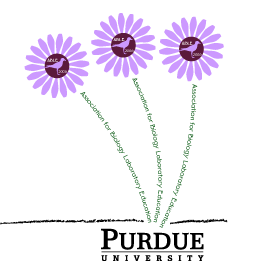Site Links
![]() ABLE 2007: University of Kentucky, Lexington, KY June 5-9. Host: Ruth Beattie
E-mail: rebeat1@uky.edu
ABLE 2007: University of Kentucky, Lexington, KY June 5-9. Host: Ruth Beattie
E-mail: rebeat1@uky.edu


Major Workshops
Wednesday June 7
Lawrence S. Blumer, Morehouse College
Induction of Secondary Chemical Defenses
The production of secondary chemical toxins or digestion inhibitors are common
anti-herbivore defenses in plants. In some plant species, the synthesis
of defensive chemicals is induced by leaf damage. Consequently, the feeding
by an herbivore induces the prey plant to increase its defenses to make itself
less vulnerable to future herbivore attack. In this study, we will study
the responses of a rapidly inducible ornamental tobacco, Nicotiana alata. Three
questions will be addressed: Do tobacco plants produce leaf toxins? Does
herbivore damage induce increased production of toxic compounds in undamaged
leaves? Does physical damage alone yield the same response by tobacco plants
as herbivore damage? Tobacco hornworm larvae are natural herbivores of
tobacco that are commercially available and will readily create herbivore damage
on tobacco plants. Leaf toxicity will be assessed using a simple brine
shrimp bioassay.
<<Back